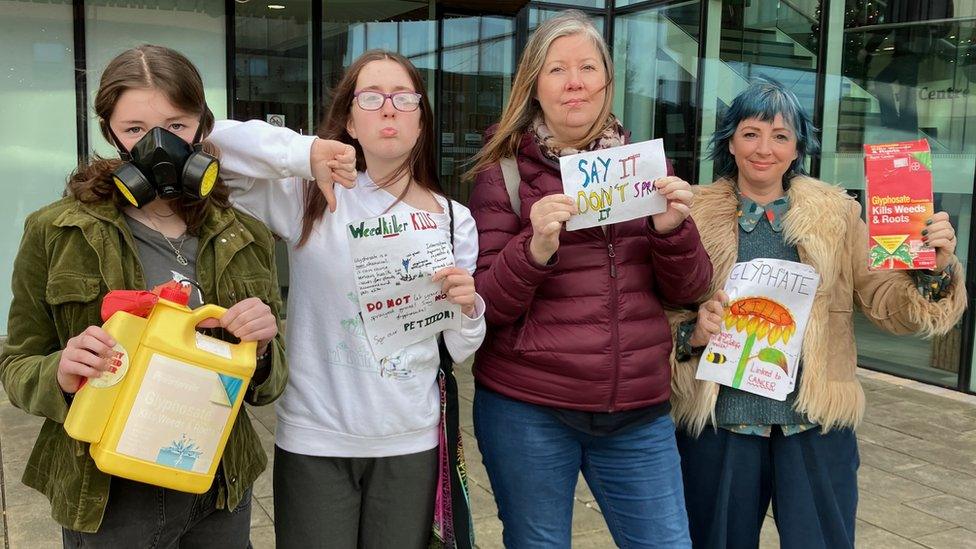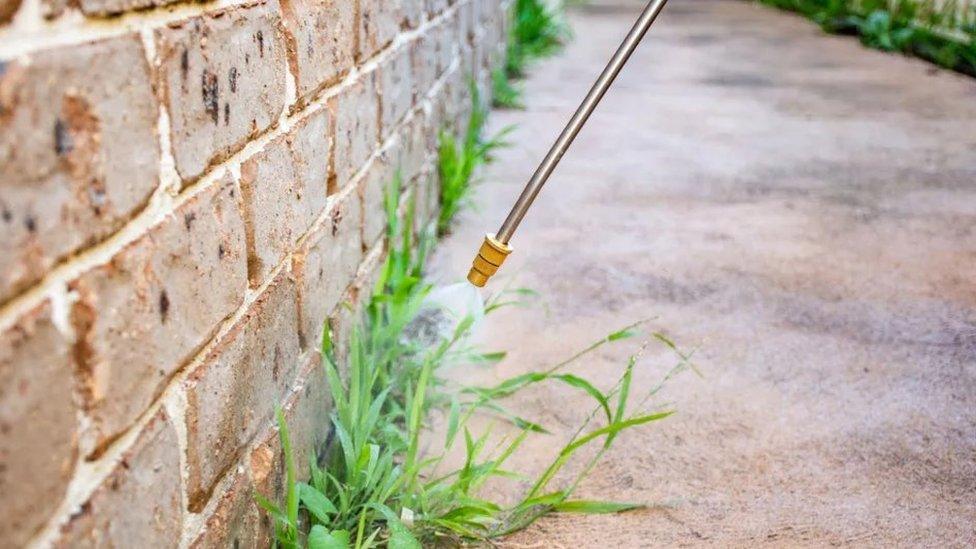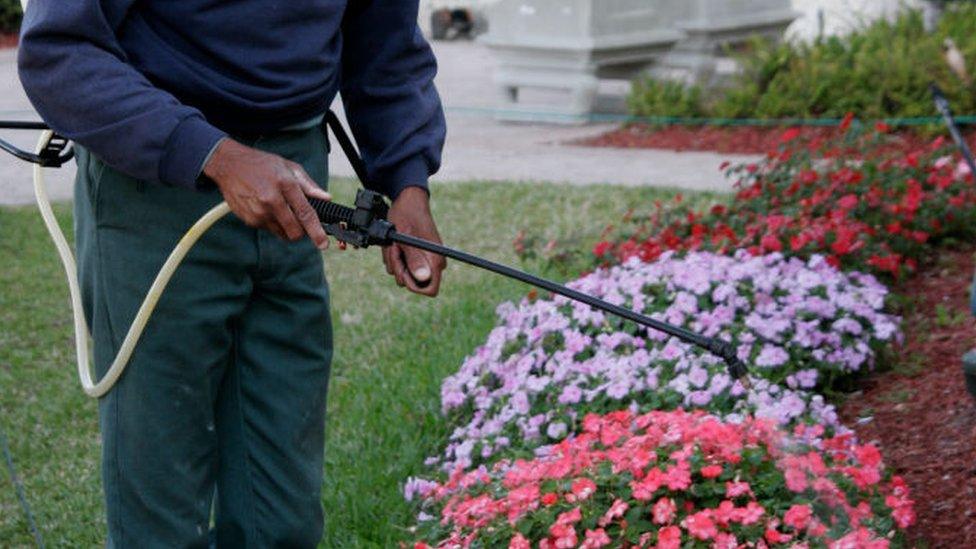Redcar and Cleveland Council to reduce use of toxic weedkiller
- Published

Demonstrators from Generation Climate Action previously held protests to ask the council to stop using glyphosate
The use of a toxic weedkiller in parks and public spaces will be reduced after a youth group's campaign.
Redcar and Cleveland Council said it would limit using glyphosate in weed treatment after health concerns about the chemical were raised in December.
Glyphosate has been linked to cancer and a decline in bee populations.
The move follows a petition by Teesside-based group Generation Climate Action, which got almost 800 signatures.
Glyphosate is the active ingredient in many herbicides and considered the most effective substance for managing invasive non-native plants.
It is registered for use as a plant protection product by the Health and Safety Executive and is approved as safe, when used as directed.
Reduction of 25%
The council said "steps have been taken to limit, reduce and stop the use of glyphosate where possible, such as near hedgerows and other biodiverse spaces".
Redcar and Cleveland Council currently uses about 1,600 litres of glyphosate annually.
It aims to reduce that amount by 25% by the end 2024 and to further reduce it in years two and three of the move.
A plan for reduction its use further, potentially from February next year, will also include cemeteries and formal parks.
In a report approved by Redcar and Cleveland Council, it said glyphosate would still be used for the management of invasive non-native plant species. It added the chemical would also continue to be used to "manage vegetation abutting hard surfaces, such as roads and footpaths", so highways were "maintained to a safe standard".
The move follows a campaign by youth group Generation Climate Action, which resulted in a near-800 signature petition being handed to the council.
The council said its approach was based on recommendations from the Pesticide Action Network UK.
The motion was moved by Liberal Democrat councillor Jemma Joy, who said there was growing scientific evidence of the harm caused by glyphosate and there were more cost effective, creative and natural solutions available as an alternative.

Follow BBC North East on Facebook, external, X (formerly Twitter), , externaland Instagram, external. Send your story ideas to northeastandcumbria@bbc.co.uk, external.
Related topics
- Published28 February 2024

- Published20 March 2019
